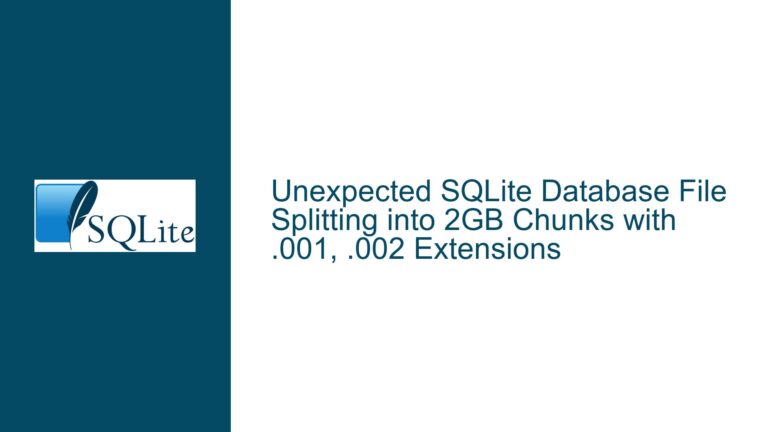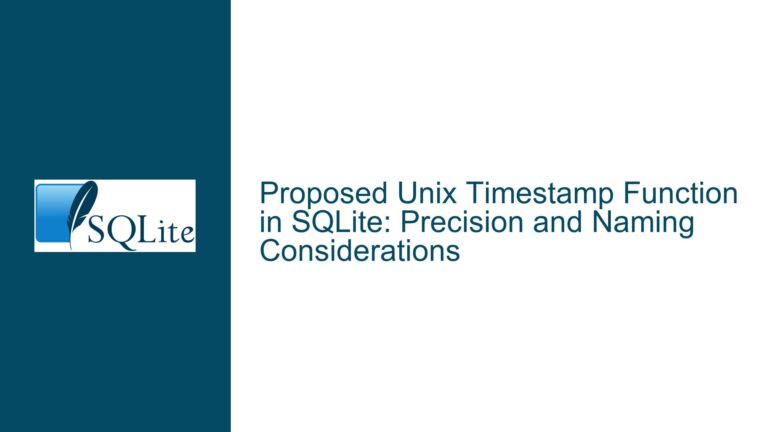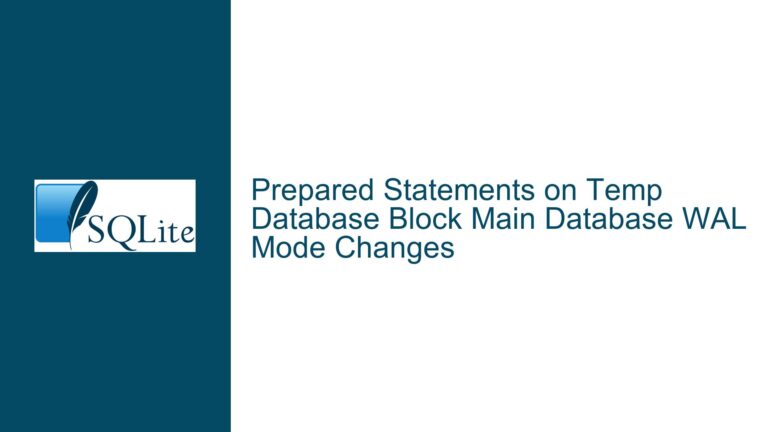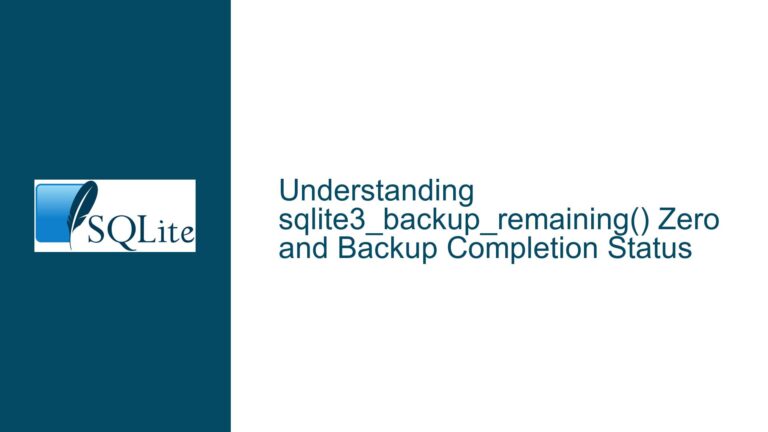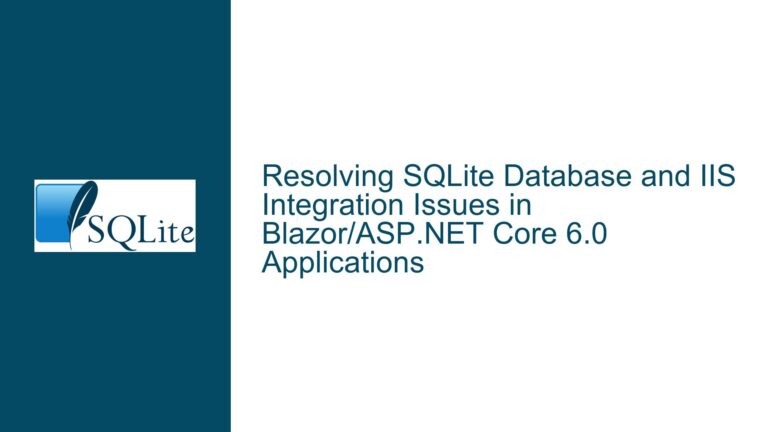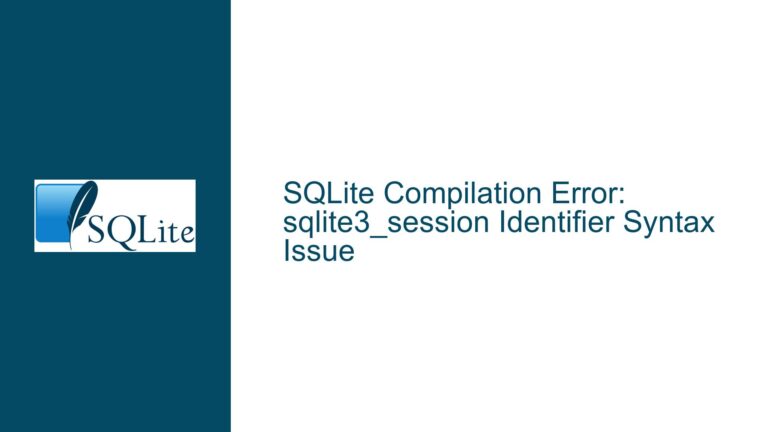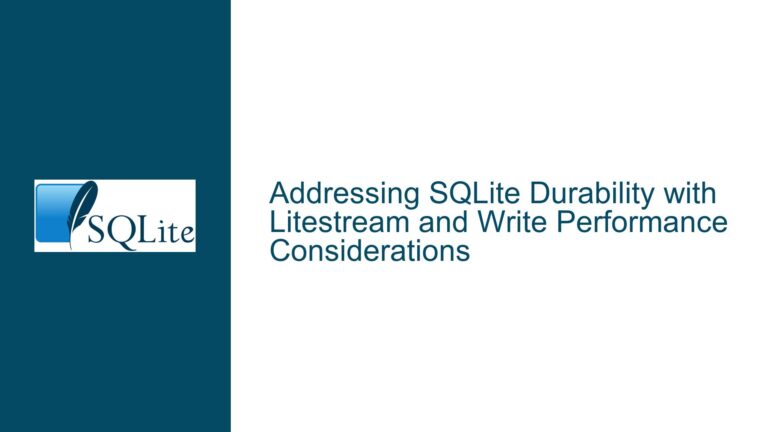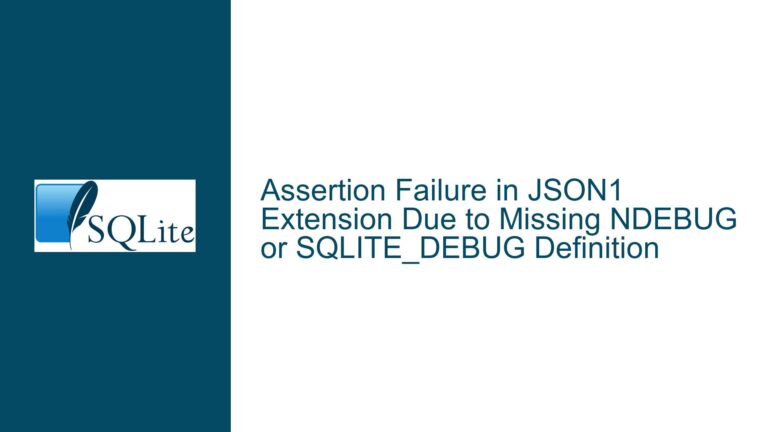Unexpected SQLite Database File Splitting into 2GB Chunks with .001, .002 Extensions
Understanding Sudden Database File Splitting into 2GB Chunks 1. Core Symptoms and Environmental Context The primary issue involves an SQLite database (my_database.db) unexpectedly splitting into multiple files with extensions like .001, .002, each approximately 2GB in size. These files are not valid SQLite databases and appear sporadically during operations involving heavy INSERT, REPLACE, and DELETE…
